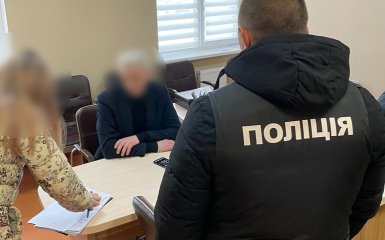On 13 December, representatives of the Kyiv police began searching the buildings of the Kyiv Metro, Metrobud, and structural units of the city state administration.
Searches have begun in "Kyiv Metropoliten" and "Metrobud".
Today, on 13 December, Kyiv police investigators launched simultaneous searches in the framework of criminal proceedings under the qualification of "official negligence" (Part 2 of Article 367 of the Criminal Code of Ukraine) in municipal institutions of the city and at a private enterprise.
According to the press service of the Kyiv police, the investigation intends to check for miscalculations in the design, construction and operation of this section of the metro.
In addition, the police will identify those responsible for the depressurisation and flooding of the subway tunnel.
Representatives of the Kyiv police point out that metro stations also remain a refuge for Kyiv residents and visitors during air attacks by the Russian army.
Moreover, thousands of people have been forced to look for other ways to get around the capital amid the subway accident.
At the same time, the police are taking all possible measures to redistribute land transport routes, relieve congestion and facilitate the movement of Kyiv residents, the National Police of Ukraine said in an official statement.
What is known about the accident in the Kyiv metro
Since 8 December, due to the repair of the tunnel on the blue line of the metro between Lybidska and Teremky stations, ground traffic has been organised in the capital, duplicating the routes of closed metro stations.
The Kyiv police have already opened a criminal case on the grounds of negligence due to cracks in the ceiling of the Kyiv metro between Teremky and Lybidska stations.
According to recent reports, the shuttle service on the closed section of the Kyiv metro is to be launched on 13 December.
More on the topic
- Category
- Events
- Publication date
- Додати до обраного
- Category
- Ukraine
- Publication date
- Додати до обраного
- Category
- Ukraine
- Publication date
- Додати до обраного
According to the press service of the Kyiv police, the investigation intends to check for miscalculations in the design, construction and operation of this section of the metro.









